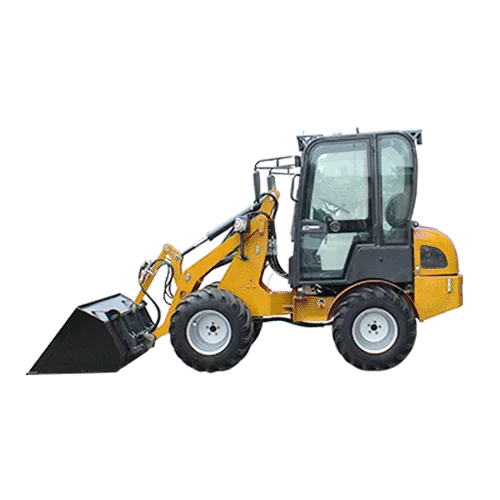Bienvenue sur mon blog !
Avant de plonger dans le contenu, j'aimerais que vous me rejoigniez sur mes plateformes de médias sociaux où je partage plus d'informations, je m'engage avec la communauté et je publie des mises à jour. Voici comment vous pouvez vous connecter avec moi :
Facebook:https://www.facebook.com/profile.php?id=100087112105480
LinkedIn:https://www.linkedin.com/showcase/99327366/admin/dashboard/
Maintenant, commençons notre voyage ensemble. J'espère que vous trouverez le contenu de ce site perspicace, intéressant et utile.
Table des matières
Introduction

Le choix du chariot élévateur idéal est une décision cruciale pour les entreprises du secteur de la construction, de l'agriculture ou de tout autre secteur d'activité qui dépend de la manutention de matériaux lourds. Le bon chariot élévateur peut considérablement améliorer l'efficacité, la productivité et la sécurité sur votre chantier. Ce guide complet examine les facteurs clés à prendre en compte lors de ce choix important.
Comprendre Camions chargeurs
Les camions chargeurs, également appelés chargeurs frontaux ou skid steers, sont des machines polyvalentes qui jouent un rôle essentiel dans l'excavation, le chargement et le déplacement des matériaux. Il en existe différents types, chacun adapté à des applications spécifiques.
- Chargeurs Skid Steer : Compactes et très maniables, les chargeuses compactes sont parfaites pour travailler dans des espaces restreints et effectuer un large éventail de tâches, de l'aménagement paysager à la démolition.
- Chargeurs à chenilles compacts : Offrant une traction et une stabilité supérieures, les chargeuses compactes sur chenilles excellent sur les terrains difficiles, tels que les sites boueux ou vallonnés.
- Chargeurs sur roues : Plus grandes et plus puissantes, les chargeuses sur pneus sont conçues pour des applications lourdes telles que le terrassement, la manutention et le transport de matériaux en vrac.
Facteurs à prendre en compte lors du choix d'un Camion chargeur
- Capacité de charge utile : La capacité de charge d'un camion chargeur détermine le poids maximal qu'il peut soulever et transporter. Il est essentiel d'évaluer vos besoins spécifiques et vos exigences futures pour éviter d'acheter une machine sous-dimensionnée.
- Environnement d'exploitation : Tenez compte du terrain, des conditions météorologiques et des contraintes d'espace de votre chantier. Par exemple, une chargeuse compacte sur chenilles est idéale pour les sols irréguliers ou meubles, tandis qu'une chargeuse sur pneus convient mieux aux surfaces dures.
- Compatibilité d'attachement : Évaluez la gamme d'accessoires requis pour vos tâches spécifiques. Les accessoires les plus courants sont les godets, les fourches, les tarières et les marteaux. Assurez-vous que le camion chargeur dispose du débit et de la puissance hydrauliques nécessaires pour utiliser efficacement ces accessoires.
- Source d'alimentation : Choisissez entre les sources d'énergie diesel et électrique en fonction de facteurs tels que la disponibilité du carburant, les réglementations en matière de bruit et les préoccupations environnementales. Les chargeuses à moteur diesel offrent plus de puissance et de couple, tandis que les chargeuses électriques sont plus silencieuses et produisent moins d'émissions.
- Caractéristiques de sécurité : Donnez la priorité à la sécurité en choisissant un chariot élévateur équipé de dispositifs de sécurité essentiels tels que les structures de protection contre le renversement (ROPS), les ceintures de sécurité et les boutons d'arrêt d'urgence. Le respect des normes de sécurité de l'industrie est essentiel pour protéger les opérateurs et les passants.
Principales spécifications à comparer

| Spécifications | Description |
|---|---|
| Poids en ordre de marche | Poids total de la machine, y compris les accessoires et les fluides. |
| Capacité de levage | Poids maximum pouvant être soulevé à pleine hauteur. |
| Portée | Distance horizontale entre le centre de rotation et la pointe du godet. |
| Hauteur de déversement | Hauteur maximale à laquelle le godet peut être soulevé. |
| Garde au sol | Distance entre le sol et le point le plus bas de la machine. |
| Débit hydraulique | Vitesse à laquelle l'huile hydraulique est pompée, ce qui affecte les performances de l'accessoire. |
Conclusion
Choisir le bon camion chargeur implique un examen minutieux de divers facteurs, notamment la capacité de charge, l'environnement de travail, la compatibilité des accessoires, la source d'énergie et les caractéristiques de sécurité. En comprenant ces éléments clés, vous pouvez prendre une décision éclairée qui maximise la productivité et l'efficacité. N'oubliez pas de consulter les concessionnaires et les fabricants de matériel pour obtenir des conseils d'experts adaptés à vos besoins spécifiques.
FAQ
Quelle est la différence entre une chargeuse compacte et une chargeuse compacte sur chenilles ?
Les chargeuses compactes sont très maniables et idéales pour les espaces restreints, tandis que les chargeuses sur chenilles compactes offrent une traction et une stabilité supérieures sur les terrains difficiles.
Comment choisir le bon seau pour mon camion chargeur?
Tenez compte du type de matériau que vous allez manipuler, du volume à déplacer et de la profondeur de creusement souhaitée.
Quels sont les avantages d'un camion chargeur électrique ?
Les camions chargeurs électriques sont plus silencieux, produisent moins d'émissions et ont des coûts d'exploitation plus faibles.
À quelle fréquence dois-je entretenir mon camion chargeur?
Un entretien régulier, comprenant les vidanges d'huile, le remplacement des filtres et le contrôle des fluides hydrauliques, est essentiel pour garantir des performances optimales et une longue durée de vie.
